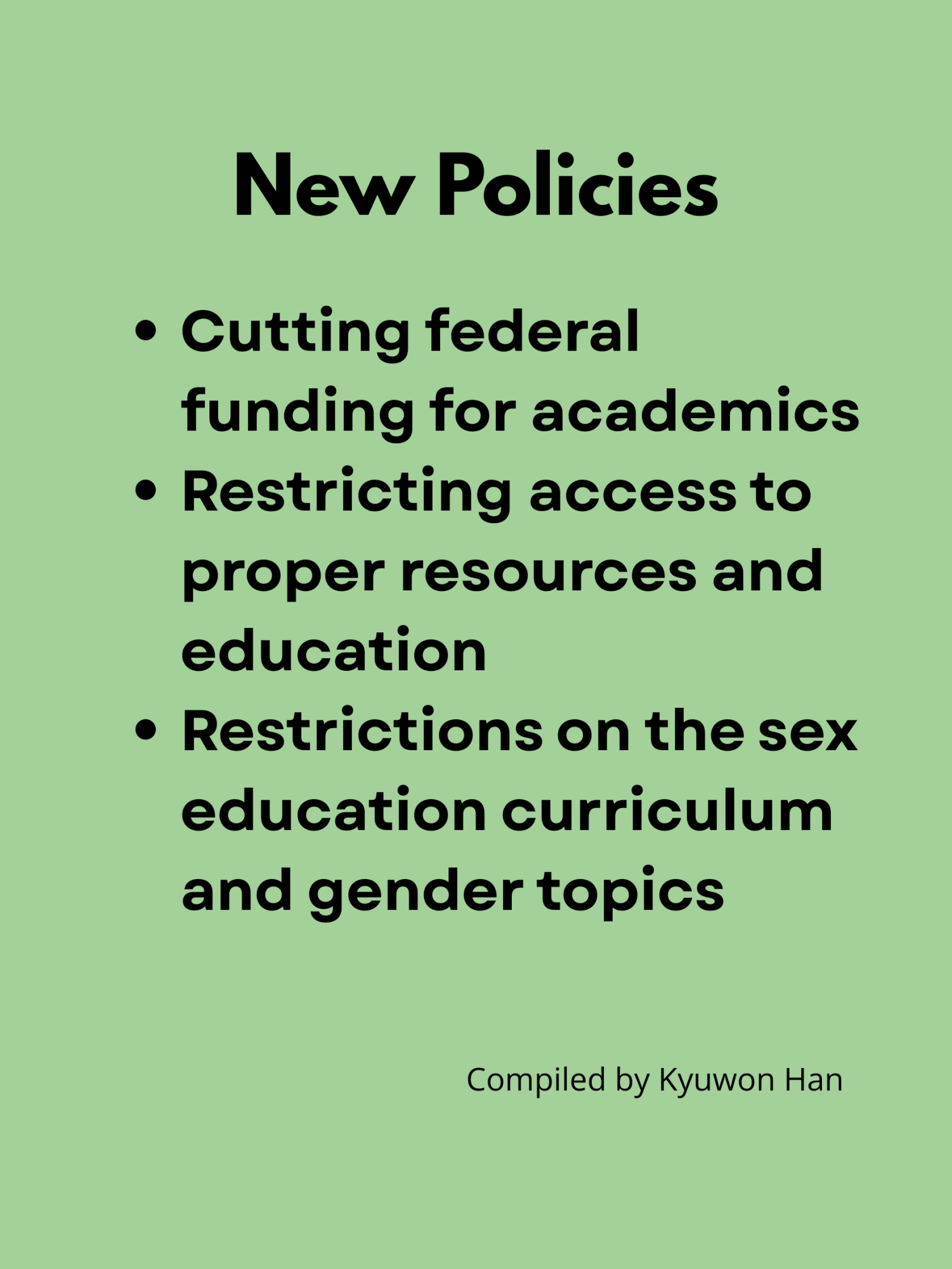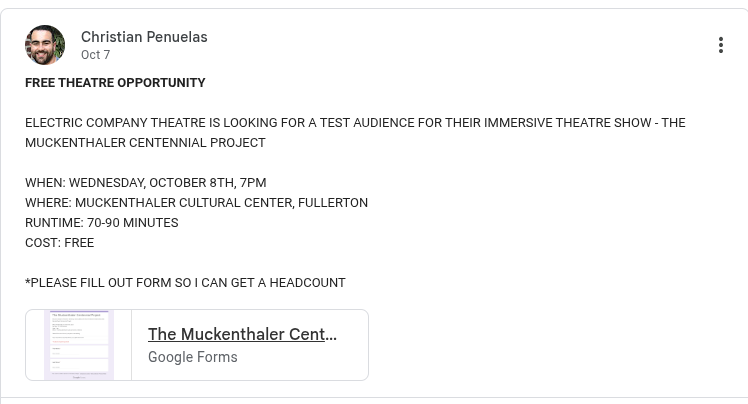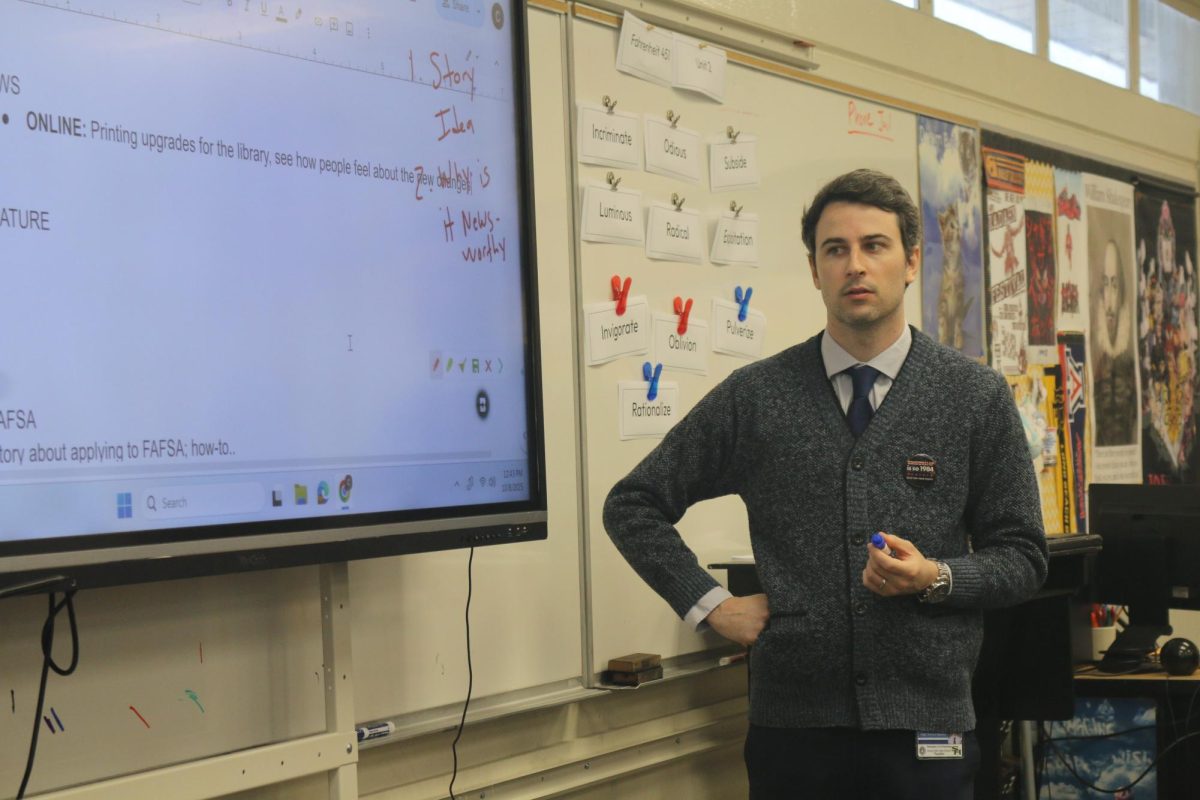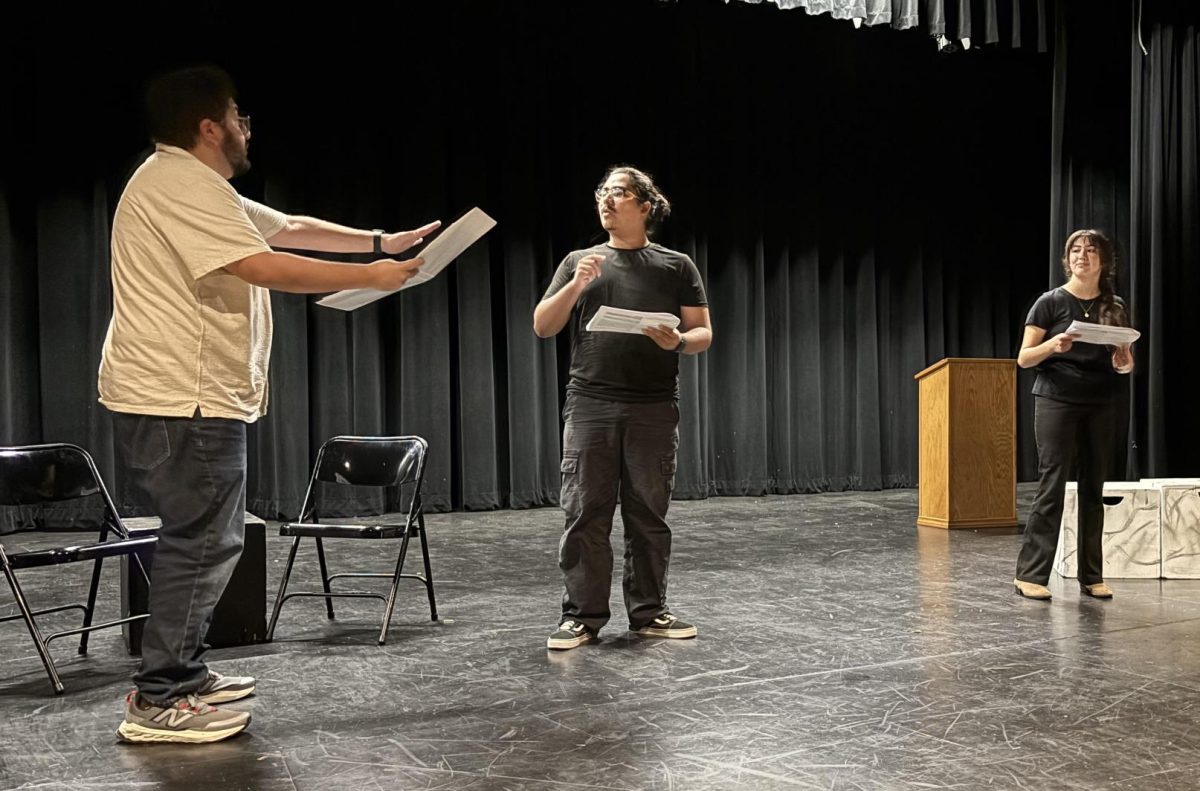A sum of $108k — that’s how much it costs for an average student to attend a public in-state college for all four years, according to Education Data Initiative.
With these four years of college tuition, students like us are often left with thousands of dollars of debt, and for most, that number is almost impossible to reach without financial help from their parents. But to remedy this burden, the U.S. Department of Education created organizations such as Federal Student Aid [FSA] to provide students with support. According to FSA, they helped 9.9 million students and provided $120.8 billion in grants each year to make postsecondary education possible.
But now, the new educational laws put that support system at risk.
Students from Sunny Hills and across the nation relied on this privilege and opportunity for an affordable education, and it became crucial for families in need of financial aid. However, the recent policies that were implemented — such as cutting federal funding for academics and restricting access to proper resources and education — are the wrong direction and should not be enforced, as those could become harmful for students. Instead, the focus should change to decreasing the unnecessary outputs of federal funding.
According to a Feb. 4 National Education Association article, president Donald Trump signed an executive order on March 20 in an attempt to dismantle the Department of Education. Some believe this policy will “return power to the States” by allowing the Department of Education to redistribute its responsibilities to the state governments. But in reality, it will just pose a negative impact as it disrupts key programs that high school students rely on for aid.
Those unaware of this policy may think it’s harmless. But this means that the government is lessening federal funding, which could actually be unfavorable for students at public schools, which rely on federal funding, like Sunny Hills.
As students, we might have to now figure out our futures in finance alone.
But as teenagers who struggle to even get through high school, we may be left devastated for ourselves and our futures because of the loss of support. Because at the end of the day, there are far more issues to care about when it comes to attending college, from the cost to location, and we as students cannot handle this alone.
According to another April 3 National Education Association article, the Department of Education ensures that students — no matter their background, ethnicity or circumstances — can have guaranteed resources and educational opportunity. Unlike private schools, which receive private donations from alumni and corporations, public schools rely on federal funding to help these students have access to the proper resources.
This means that by possibly disrupting this system, students can lose access to programs and support to succeed at school. And Sunny Hills, a public school, will also be affected by these policies if they continue to be enforced.
According to a Children Now article, even our school food, which is provided by the Department of Education through California’s Universal Meals Program and has served over 849 million meals to students, may be restricted.
Students have enjoyed free meals at Sunny Hills and defunding this system can not only affect us negatively by failing to provide everyone the proper nutrients, but also disappoint the students who rely on these programs.
So, these policies that help fund our basic resources, like the school lunch, may be stripped away from our school because of the policy change. Sunny Hills students can enjoy free meals thanks to the federal funding for the program, but with the dip in funding, some students may have to pay for their meals now, or pack their own food.
Furthermore, the proposal decreased funding to the Department of Education by 5.6%, a total cut of $3.8 billion, and a 21% decrease for the Department of Health and Human Services, which provides child care and education programs, according to a New America article.
This could result in a cut in support for after-school enrichment programs and mental health services for students. If this policy reaches our school, then Sunny Hills students could also experience a decrease or limitation in programs and resources necessary for some.
These programs can be crucial for some students as they help them navigate through their careers and life. And without these, students could lose the support that they rely on to succeed and prepare for life after high school.

Beyond academics, some policies are setting restrictions on the sex education curriculum and gender topics, which are both federally funded. Specifically, they are pushing the notion that people can identify as only male or female and limiting the “gender ideology” that people can identify as something other than what they are born with, according to a Friday, Aug. 29 AP News article.
In this generation, when teenagers are constantly striving to find and navigate their individual identities, putting limitations on what these students are exposed to will lead to a gap in health knowledge and further exclusion of LGBTQ+ students. By removing sex education, which informs students about contraception, consent and even LGBTQ+ issues, these people will become less informed about their own health and safety.
Instead, if the goal is to minimize the use of federal funds, the government should turn its focus to not spending billions of dollars to maintain underutilized federal buildings and getting rid of duplicative programs. This way, they can cut unnecessary funding while also providing an accessible education.
Therefore, these policies that are dismantling the Department of Education, cutting federal funding for academics and restricting necessary education for teenagers should not be further enforced.
Because if these policies are pushed through, it won’t just affect a couple of individuals. It affects everyone at Sunny Hills. It affects us.









